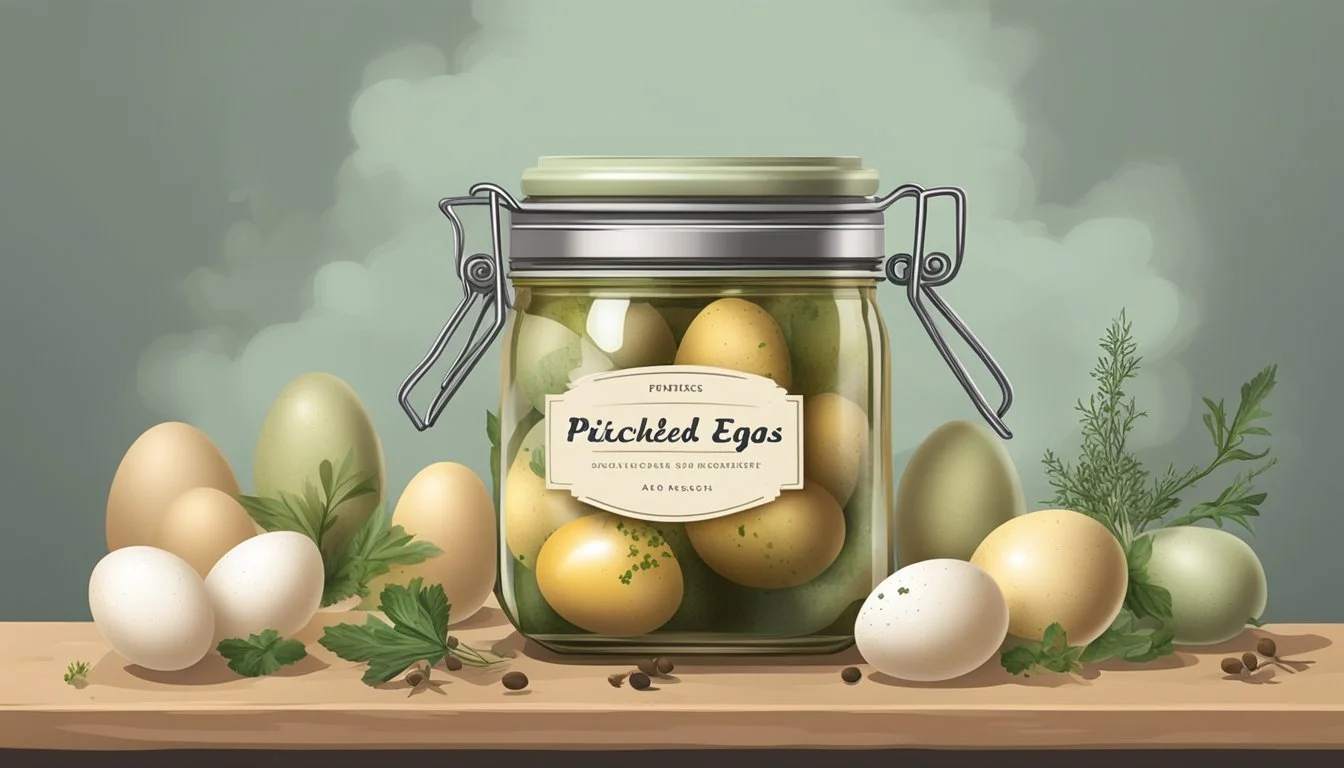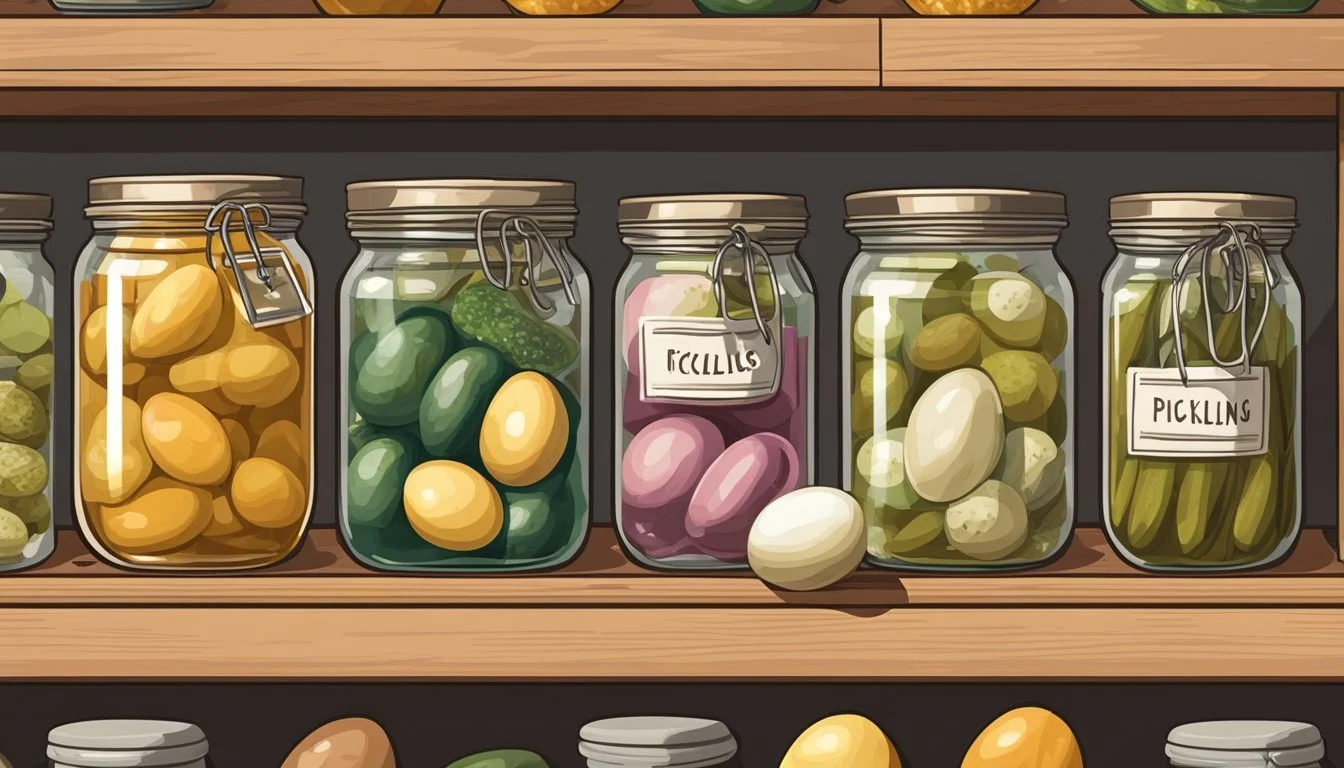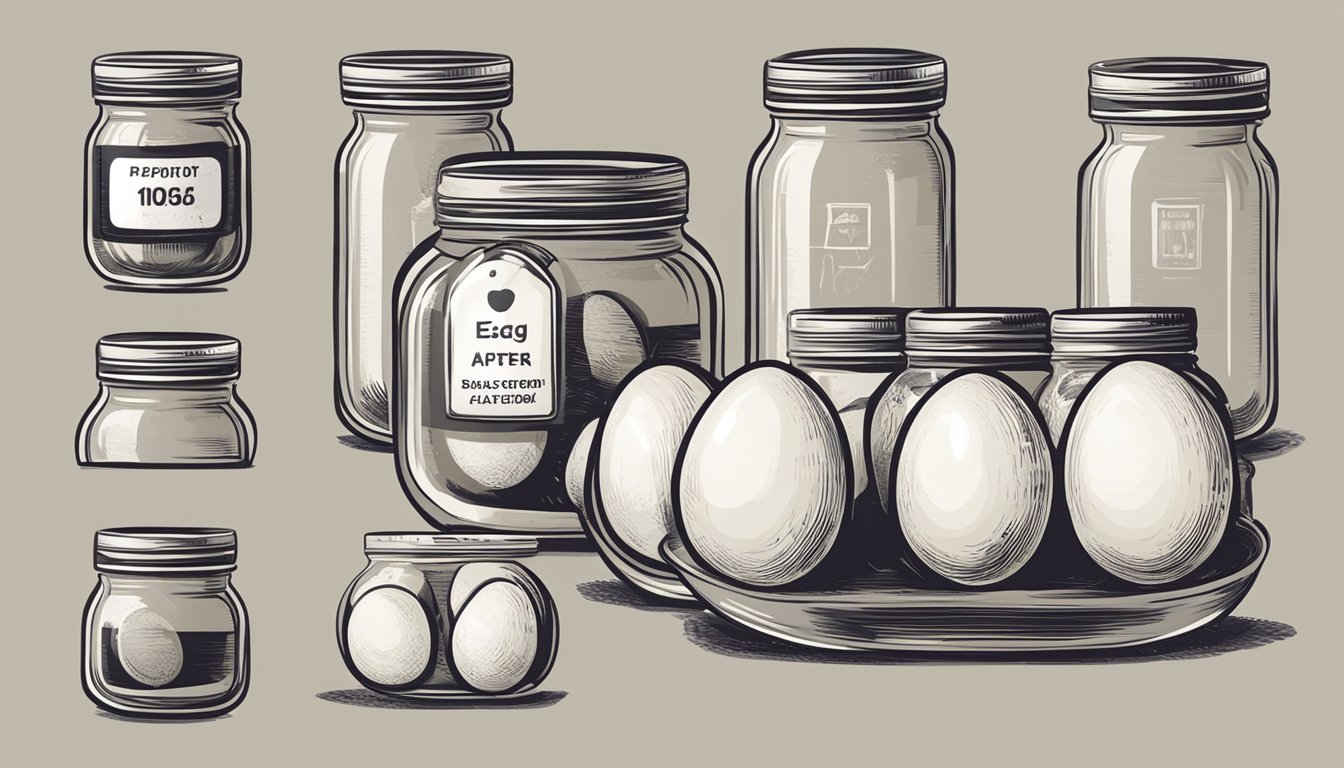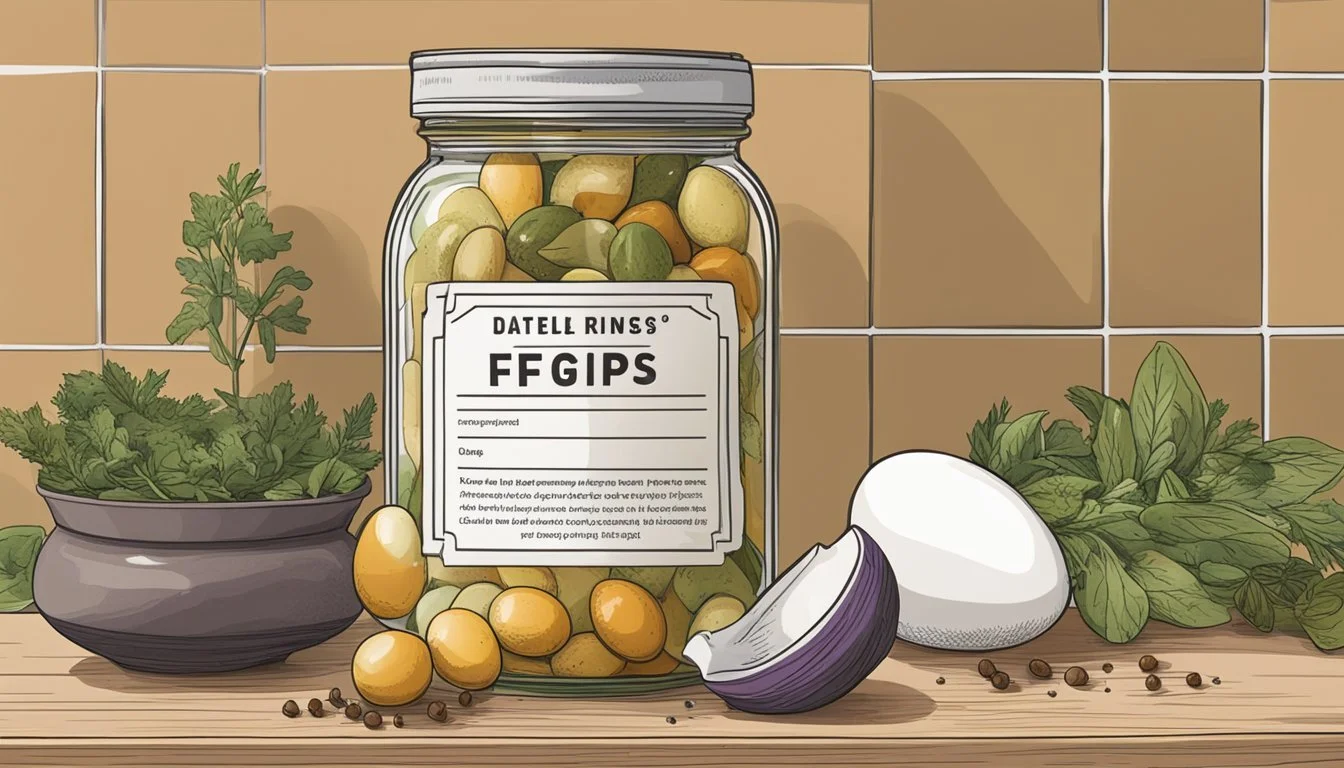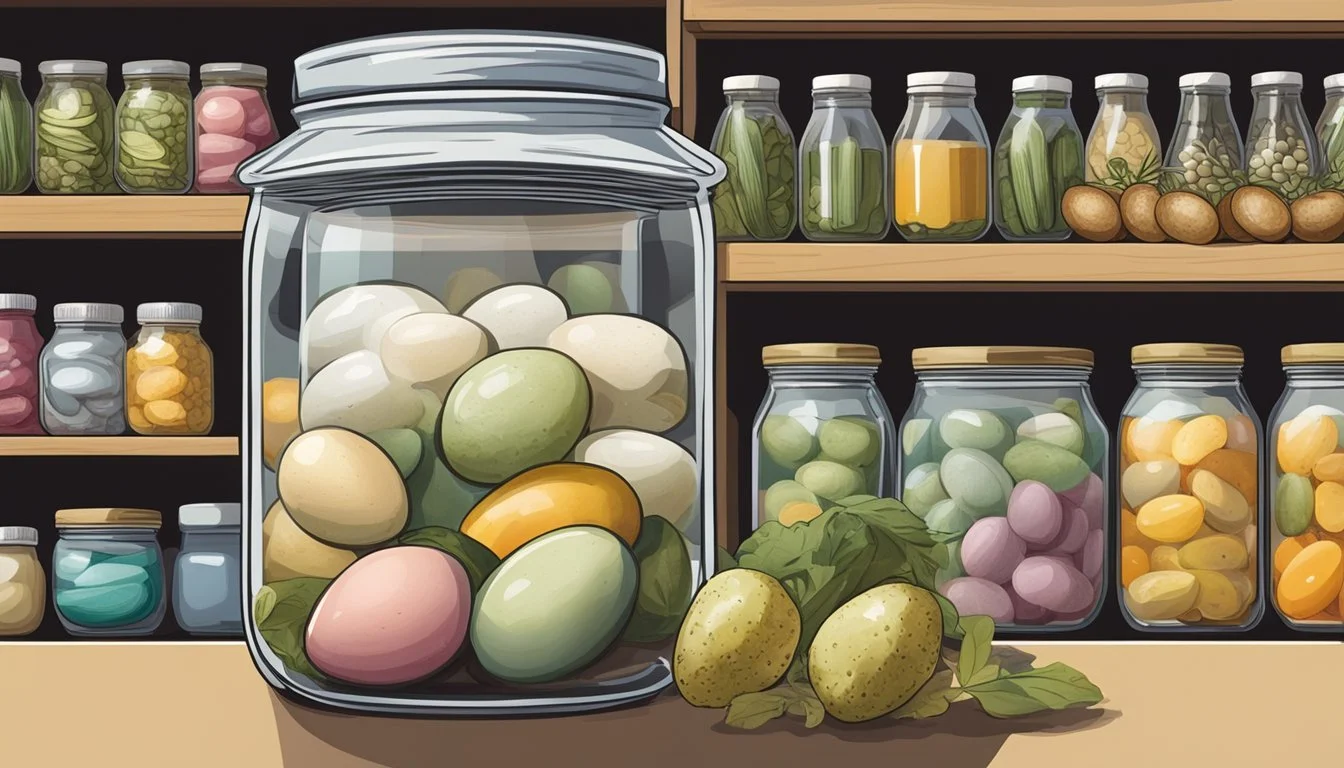How Long Does Pickled Eggs Last?
Understanding Shelf Life and Storage Methods
Pickled eggs are a traditional delicacy often enjoyed for their tangy flavor and extended shelf-life compared to fresh eggs. The longevity of pickled eggs is primarily due to the pickling process which involves submerging hard-boiled eggs in a mixture of vinegar, salt, spices, and sometimes sugar. This acidic environment is hostile to many bacteria, effectively preserving the eggs.
The shelf life of pickled eggs can vary depending on factors such as the method of preparation, the ingredients used, and the storage conditions. Typically, when stored properly in a refrigerator at or below 40°F (4°C) in a clean, airtight glass container, pickled eggs can last from several weeks to up to 4 months. It is important to note that eggs should be fully submerged in the pickling liquid to ensure even preservation.
Storage conditions play an essential role in maintaining the quality of pickled eggs. They must be kept in a refrigerator at a consistent temperature and never left out at room temperature for extended periods, as this can significantly shorten their shelf life and potentially cause spoilage. For optimum freshness, consumers are advised to pay attention to the eggs’ appearance, smell, and texture and to use them by the "best before" date if provided.
Understanding Pickled Eggs
Pickled eggs are a traditional snack made by immersing hard-boiled eggs in a vinegar-based solution. During the pickling process, the blend of vinegar, salt, and sugar acts as a preservative, extending the shelf life of the eggs while also imbuing them with a unique, tangy flavor.
Ingredients & Process:
Vinegar: The cornerstone of the pickling brine, creating an acidic environment.
Salt: Works synergistically with vinegar to preserve the eggs.
Sugar: Often added to balance the sharpness of the vinegar.
Flavoring: The inclusion of spices, herbs, garlic, pepper, and dill enhances the taste.
The process begins with eggs that are hard-boiled and peeled. These eggs are then submerged in the pickling solution. The quality of the pickling brine, along with the use of additional flavor agents such as garlic, pepper, and dill, contributes significantly to the final taste.
Canning & Storage: It is essential to follow proper canning techniques to ensure the pickled eggs storage safely. Using clean canning jars prevents bacterial contamination.
Shelf-life Factors:
Brine composition
Sterility of jars
Refrigeration: Consistent cold storage is crucial.
They may be stored in the refrigerator for several months, but for optimal safety and flavor, it is typically recommended that they are consumed within a period of three to four months. It is paramount to always check for signs of spoilage such as off odors or changed textures before consumption.
Proper Storage Methods
Preserving the quality and extending the shelf life of pickled eggs is highly dependent on proper storage methods. Adhering to effective techniques ensures flavor, texture, and safety.
Refrigeration Techniques
Refrigeration is paramount for preserving pickled eggs. They should be kept in the fridge at a consistent, cold temperature to maintain quality. Homemade pickled eggs typically last for 3 to 4 months when refrigerated.
Alternative Preservation Methods
While refrigeration is the standard, freezing pickled eggs is not recommended due to quality deterioration. A frozen texture and flavor are inferior once thawed.
The Role of Containers
Utilize airtight containers, preferably glass jars with secure lids. Metal containers can react with the acidic environment of pickled eggs, causing spoilage.
Tips for Extending Shelf Life
Keep eggs submerged in the pickling liquid to prevent exposure to air that could lead to spoilage.
Maintain the acidity of the pickling solution since an acidic environment helps preserve the eggs.
Storage Conditions Impact
Storing at room temperature is risky; pickled eggs must be kept in cool conditions. Storage conditions like steady temperature and humidity levels are vital in a refrigerator environment to ensure longevity.
Handling Store-Bought Variations
Store-bought pickled eggs often come with a "use-by" date. They are generally shelf-stable until opened; afterwards, they must be refrigerated and treated with the same care as homemade batches.
Guidelines for Homemade Batches
When creating homemade pickled eggs, ensure cleanliness during the preparation method and use fresh ingredients and seasonings. Store them in the fridge immediately after preparation.
Safety and Spoilage Indicators
When preserving food such as pickled eggs, safety is paramount. It’s crucial to recognize spoilage signs and understand the risks associated with bacterial contamination. Maintaining proper storage conditions and cleanliness can prevent contamination and ensure the pickled eggs remain safe to consume.
Recognizing Spoilage Signs
Spoilage can be determined by several clear indicators. If pickled eggs develop a slimy texture, present an off odor or foul smell, or show any signs of discoloration such as unusual color, they should not be consumed. The presence of mold or bubbles can also indicate that the eggs have gone bad.
Risks of Bacterial Contamination
Pickled eggs face the risk of being contaminated by harmful bacteria, such as Clostridium botulinum, which causes botulism. This bacterial growth can occur in low-acidity environments and result in severe food poisoning. Bacteria thrive away from acidic conditions, which is why maintaining a sufficiently acidic environment in the pickling solution is critical for safety.
Preventing Contamination
To prevent contamination and ensure the longevity of pickled eggs:
Acidity: Use an adequate amount of vinegar in the pickling solution, such as apple cider vinegar, white vinegar, or red wine vinegar, to create an acidic environment that inhibits bacterial growth.
Spices and Salt: Incorporate a proper ratio of spices and salt not only to enhance the flavor profile but also to assist in preservation.
Storage Conditions: Always store pickled eggs in the refrigerator in a clean, airtight container.
Immersion: Ensure the eggs remain fully submerged in the pickling liquid to prevent exposure to air, which can encourage spoilage.
Culinary Uses and Recipes
Pickled eggs, with their distinctive flavor profile, offer a unique addition to various dishes. They can be enjoyed as a standalone snack or used to enhance the taste of salads, sandwiches, and more.
Serving Suggestions
Pickled eggs are a versatile snack on their own and can also serve as a tasty garnish. They often accompany crackers or bread for a simple yet satisfying treat. Salads benefit from the added texture and flavor of sliced or quartered pickled eggs.
Incorporating Into Dishes
Incorporating pickled eggs into dishes brings an unexpected twist to traditional recipes. Diced pickled eggs can add depth to sandwiches, particularly when paired with robust flavors like sharp cheddar or pastrami. Deviled eggs made from pickled eggs provide a tangy variant to the classic appetizer, with the pickling spices contributing to the overall taste.
Variations in Recipes
The flavor profile of pickled eggs can vary greatly based on the recipe. Adding beet juice creates a vibrant color and a sweet, earthy flavor. Aromatic garlic cloves, seasoning like peppercorns and red pepper flakes, enrich the eggs with complex flavors. For those interested in smaller portions or a milder taste, pickled quail eggs are a suitable alternative to chicken eggs in any recipe.
Pickled Eggs Lifespan
The lifespan of pickled eggs is influenced primarily by storage methods and the ingredients used in the pickling process. Properly storing them in optimal conditions can extend their shelf life significantly.
Shelf Life Expectancy
Pickled eggs have a limited shelf life that ranges from several weeks to up to 6 months. In the refrigerator, they can typically last between 3 to 4 months. For best results, they should be consumed by the "use by" or "best before" date when provided, especially if they are store-bought.
Impact of Storage Techniques
Storage conditions play a crucial role in the preservation of pickled eggs. They should always be stored in the fridge at a consistent, cool temperature. Keeping them in an airtight container is essential to prevent contamination and preserve their flavor and texture. Refrigeration helps to maintain an optimal environment for the eggs, as room temperature storage is not recommended.
Effect of Ingredients on Preservation
The ingredients in the pickling solution—vinegar, salt, sugar, and sometimes spices or herbs—create an acidic environment that helps preserve the eggs. However, the acidity level, as well as the ratios of vinegar, salt, and sugar, can affect both preservation and flavor of the eggs. Eggs with a higher acid content may last longer, as the acid acts as a natural preservative.
Concluding Remarks
In this final section, the article consolidates the essential facts regarding the preservation and quality of pickled eggs, addressing common queries for clarity and safety.
Summary of Key Points
Storage Conditions: Pickled eggs should be stored in a refrigerator to maintain quality and safety. The container must be airtight, preferably glass, to avoid contamination and preserve flavor.
Shelf Life: The expected shelf life of pickled eggs is between several weeks to 4 months, contingent on proper refrigeration and storage.
Quality and Taste: To ensure the best quality and taste, it's crucial that pickled eggs remain submerged in the pickling brine.
Safety Precautions: Be vigilant for signs of spoilage such as off odors, colors, or textures, and discard any eggs showing these indications.
Frequently Asked Questions
What influences the shelf life of pickled eggs?
Storage temperature: Keeping pickled eggs refrigerated.
Container: Using clean, airtight containers, preferably glass.
How can one tell if pickled eggs have gone bad?
Indicators include changes in smell, taste, and appearance, such as an off odor, sour taste, or discoloration.
Are there risks associated with improper storage?
Yes, consuming spoiled pickled eggs can pose health risks, so it's essential to follow storage guidelines and look for spoilage signs.
Do the sizes of the eggs alter the preservation process?
No, the size of the eggs generally doesn't affect preservation significantly, as long as the eggs are fully submerged in the brine and stored correctly.
Additional Considerations
When storing pickled eggs, understanding the pitfalls to avoid, addressing common questions, and acknowledging the importance of quality and safety are vital for maintaining both flavor and edibility.
Common Mistakes to Avoid
Contamination: One should never underestimate the importance of using clean jars for pickled eggs, as contamination can compromise safety and reduce shelf life.
Seasoning Fluctuations: An excess or lack of seasoning can affect the taste and preservation of pickled eggs. It is crucial to follow a reliable recipe for balanced flavor.
Answering Common Queries
Shelf Life: They commonly last for 3 to 4 months in the refrigerator when stored correctly.
Signs of Spoilage: Be aware of any off odors or discoloration; these are indicators that pickled eggs may no longer be safe to consume.
Final Thoughts on Quality and Safety
Quality: Properly prepared and stored pickled eggs retain quality in terms of taste and texture.
Safety Concerns: Risks like botulism and food poisoning can arise from improper handling, necessitating strict adherence to safety practices and storage guidelines.
References and Resources
For individuals interested in the preservation of pickled eggs, various resources cover the topic extensively. A key factor in extending the life of pickled eggs is the quality of the pickling liquid. The liquid typically consists of a vinegar-based solution which is crucial for preservation.
Canning and Preservation Guides: Comprehensive manuals on canning provide essential tips for ensuring a safe and long-lasting pickling process. They often include:
Specifications on the vinegar to water ratios.
Instructions on boiling procedures to sterilize jars.
Food Safety Databases: Authoritative resources such as the USDA's Complete Guide to Home Canning offer insights into safe practices and storage guidelines.
Recipes and Methods:
Standard pickled egg recipes provide a baseline for appropriate vinegar concentration to ensure safety and taste.
Expert culinary sites typically suggest using high-quality, food-grade materials for storage, such as glass jars with airtight seals.
In summary, a wealth of knowledge from professional chefs and food preservation experts can be gleaned from:
Chef’s Resource
Guidelines on storage and signs of spoilage.
The Trellis
Additional details on the factors affecting shelf life.
Foods Guy
Recommendations for the types of containers best suited for longevity.
One's understanding and application of these resources directly impact the shelf life and safety of pickled eggs.


